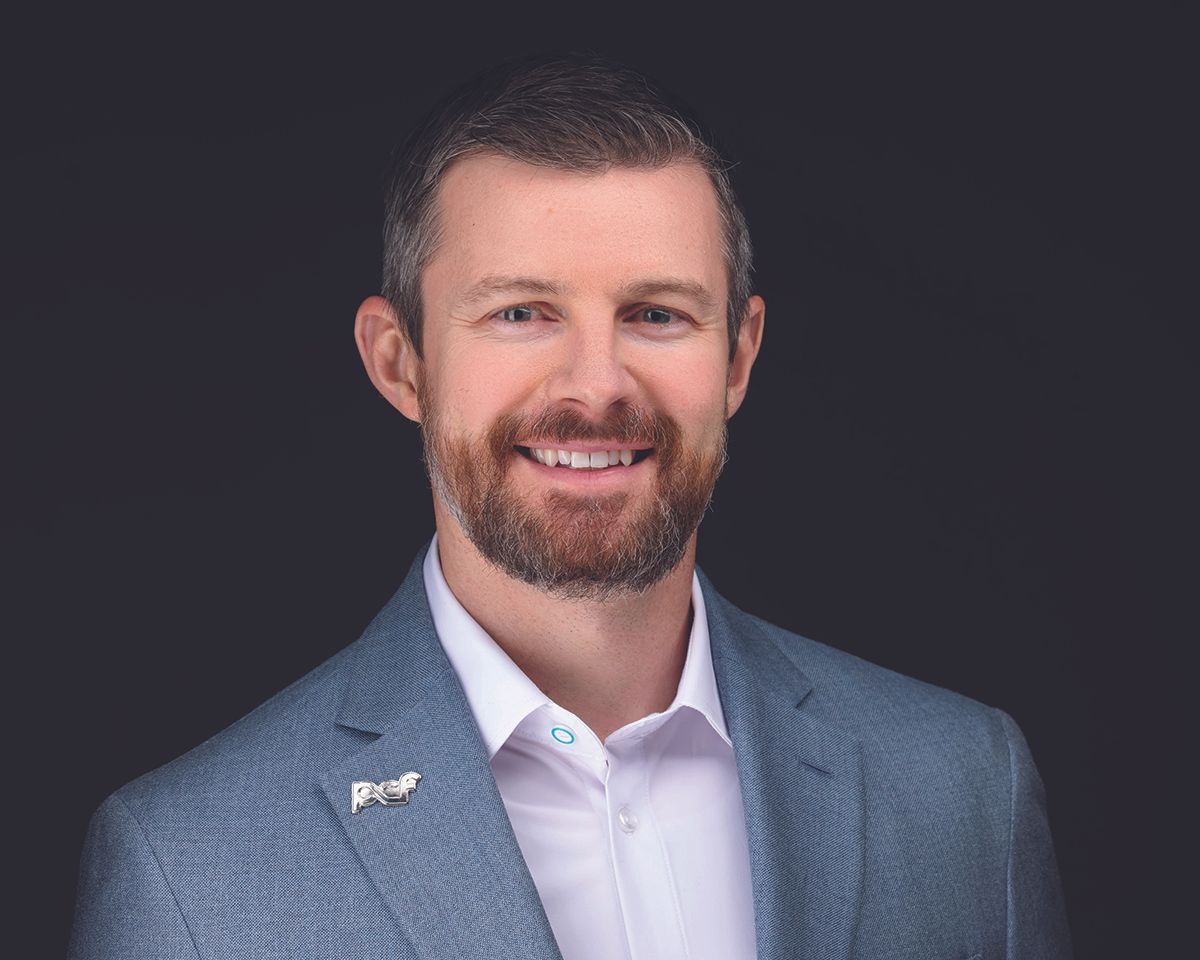Lessons from my youth that helped me as a serial entrepreneur
This article was published in the Spring 2022
By Chris Bowerbank, CEO Co-Founder, Beny

At 21 years old I started selling insurance on my own. After working full time for two months, my first commission check was $19.21. Eight years later I sold that profitable insurance business and used the proceeds to start three more businesses over the next 12 years.
There are so many things I’ve learned about startups and entrepreneurship over the years; each long day, every successful sale, and all the hoops jumped through were the ultimate classroom. Twenty years as an entrepreneur can be boiled down into three main lessons I believe every founder must learn: how to sacrifice, execute a focused vision, and learn to enjoy the grind.
To eventually make money, you may first learn how to be poor
I didn’t have a trust fund or a rich uncle to help start my insurance business. I barely had a savings account. I passed the insurance license exam (third time’s the charm) just 2 weeks after we were married. My young bride supported the both of us making only $1000 per month. We somehow lived off a $100 monthly food budget, $600 rent, shared a car, and by some miracle I was able to save a little each month.
It took three years of sacrifice to see positive momentum. I had the conviction that if I continued to work hard and smart I could build a successful business that would support my family and lifestyle.
Being poor was a blessing. It’s amazing how that primal instinct of needing to put food on the table and shelter over your head will compel you to sacrifice. With a startup, there’s always a price to pay and always a sacrifice to make. It’s not just long work hours (although there's plenty of those). It’s the time it takes to educate yourself and become the expert in your business, it’s always being paid last (if at all), it’s planning, prioritizing, and executing every last detail. Each step takes sacrifice and time away from hobbies, weekends, friends, and family.
Growing up, my dad often worked three jobs to support his family of 8 children and my mom ran an in-home daycare as a side hustle. I saw them give up going on vacations, shopping thrift stores instead of the latest fashions, and choosing decent used cars over the latest model so that my seven sisters and I would have the things we needed. Sacrifice exposes what we prioritize most. For my parents, their priority was their children. When I sacrifice for a startup, I do it for those I love most; my wife, my children, and my parents. Every entrepreneur has different reasons for why they do what they do. It’s critical that you know your why.
The path to success is narrow
In my early years, I quickly learned there’s an insurance product for just about every bad thing that could happen to someone, so my choices of what to sell were vast. My mentor Marcus Johnson taught me early on that I needed to choose a niche product and go all in. Being the best at something was much more valuable in the marketplace than being just “okay” at a lot of things. But being the expert requires an intense and narrow focus on my product.
A common characteristic of entrepreneurs is that they have ideas—lots of ideas. You only need one of those good ideas to turn into a great idea and ultimately into a successful business. We get ourselves into trouble when we go after too many ideas at once and lose that narrow focus. Focusing on one idea at a time allows us to test the market, pivot slowly into another idea or variant, and find our own secret sauce. When I started my insurance business, the internet was still new and very few competitors were generating leads online. I decided to invest big into the idea of generating online leads for my business and that singular focus made all the difference.
If you don’t enjoy the grind, at least make it fun
At age nine I became a paperboy. I’d deliver about 40 papers in the afternoon on weekdays and morning weekends, rain or shine. As soon as I got home from school, I’d start folding papers; I’d bag them on rainy days. Being a paperboy was fun. I really enjoyed throwing papers on people’s porches and driveways, getting paid to ride my bike, and a sense of pride that came with my first paycheck. However, the newspaper company made me go door to door each month and collect the subscription fee from my customers. I really hated this part. If I didn’t do it, I wouldn’t get paid and eventually be fired. Collecting fees became the grind for me. Despite the drudgery as I walked to and from each door, I did this for four years straight and learned the value of the grind along the way.
Four years later, I graduated from paperboy to construction worker. At 13, I worked summers with my brother-in-law Jack who did handyman work. We would work 12 to 14 hours a day to get the job done. With minimal construction experience, most jobs I was given were monotonous and tedious. One year I spent three weeks straight caulking the exterior of a house. The monotony became such a grind that we started making up games as we worked. For an entire day we pretended my friend Aaron was a squirrel, just to find the humor throughout the day. Startups are a grind. They’re tough. They will test you to your limits physically and emotionally. When you don’t enjoy it, find ways to make it fun.
For my business today, I love sales and marketing. It’s fun, exciting, and allows me to be creative. The grind is operations, hiring, compliance, accounting, taxes, billing, etc. Working through the less-fun parts of your business can be both horrible and amazing at the same time. Finishing your tasks after a day of grinding leaves you feeling accomplished and fulfilled.
Today, in my business I enjoy the challenge of trying to grind smarter and not harder and make things fun. I can often utilize technology to make these areas better and easier. Many times, the best part is finding other talented and valuable members of my team who enjoy working in those areas that allow me to delegate and utilize the talents of others.
Life as an entrepreneur is not for the faint of heart. It is significantly easier to just go get a job. You work your hours, pick up your paycheck, and move on with your life. Instead, the lifestyle I've chosen as an entrepreneur is riddled with risk, full of uncertainty, and sprinkled with doubt. It requires a lot of courage and grit (a little naïveté might help too). But at the end of each day, I know I have earned a lifestyle of freedom, flexibility, and dynamic earning potential. I wouldn't have it any other way.
Take Our Survey
Hi! The Silicon Slopes team is interested in your feedback. We are asking for a couple minutes to quickly provide feedback on our Silicon Slopes quarterly magazine publication. Click HERE and share your thoughts with us. Your responses will help us improve. Thanks!
*Read the latest issue of Silicon Slopes Magazine, Spring 2022


